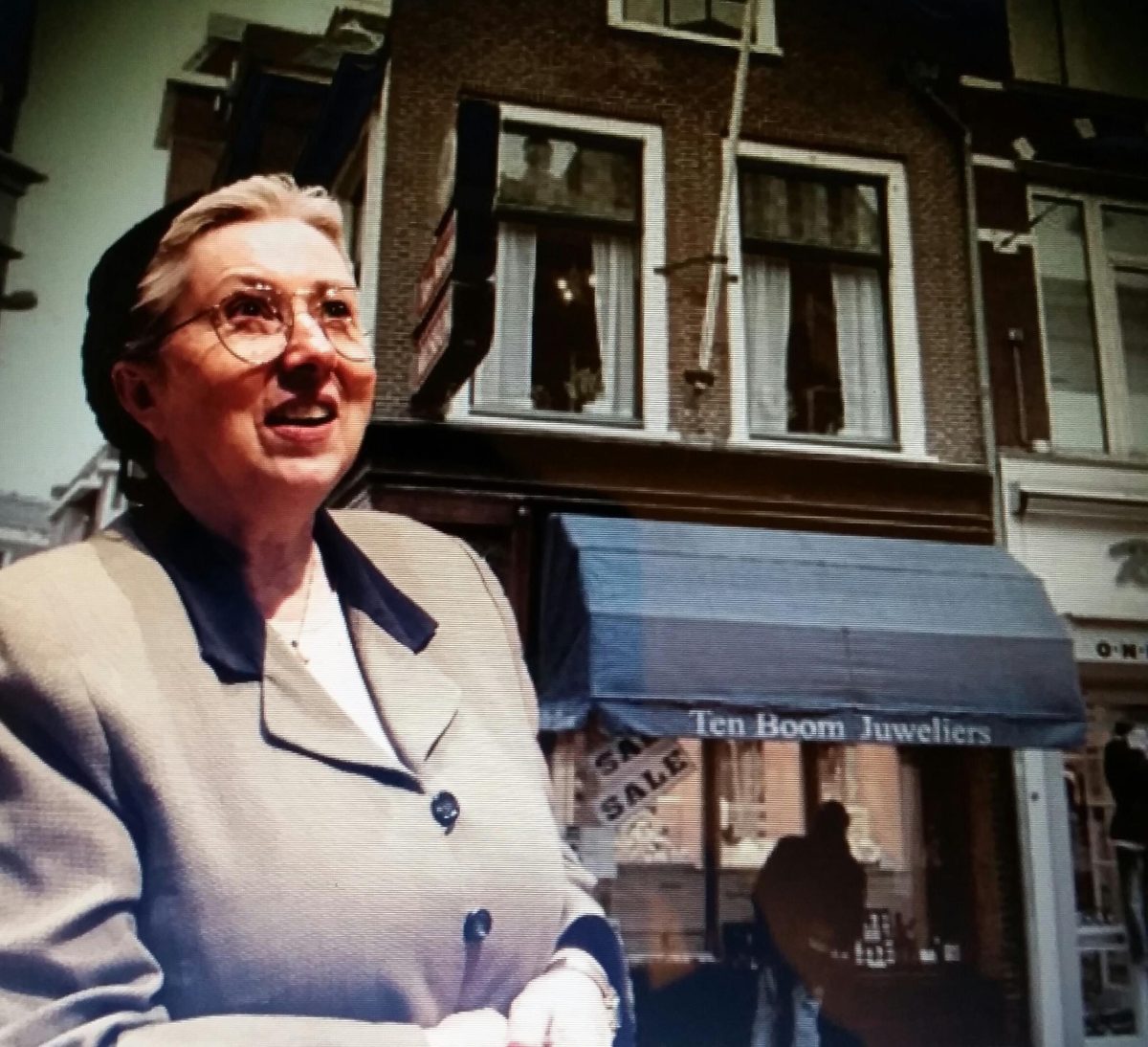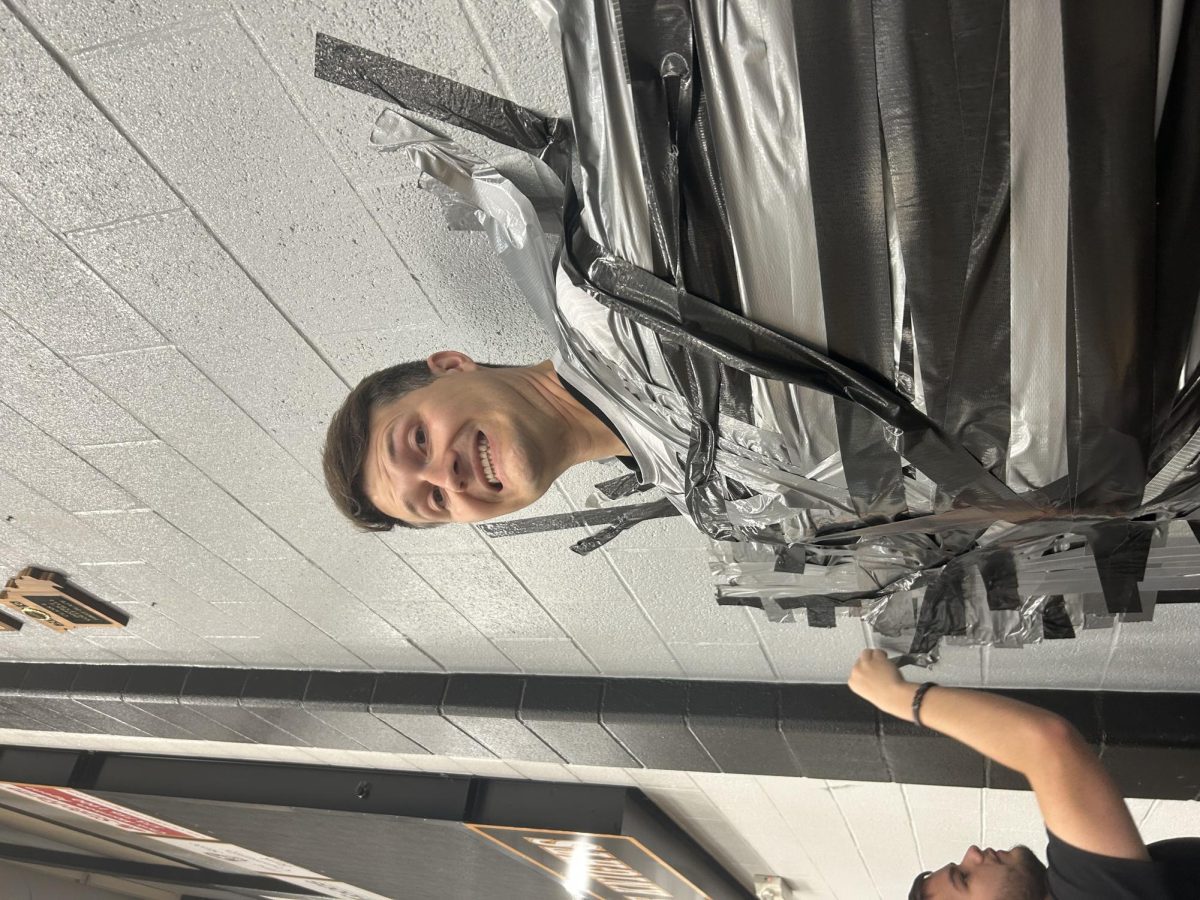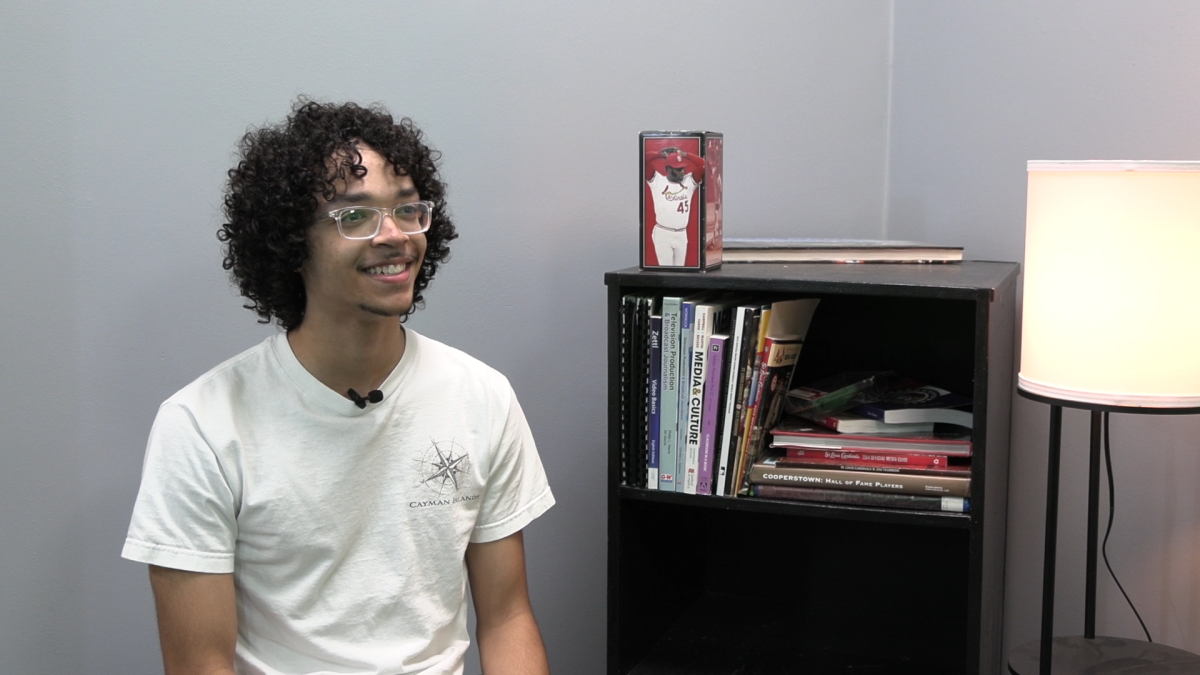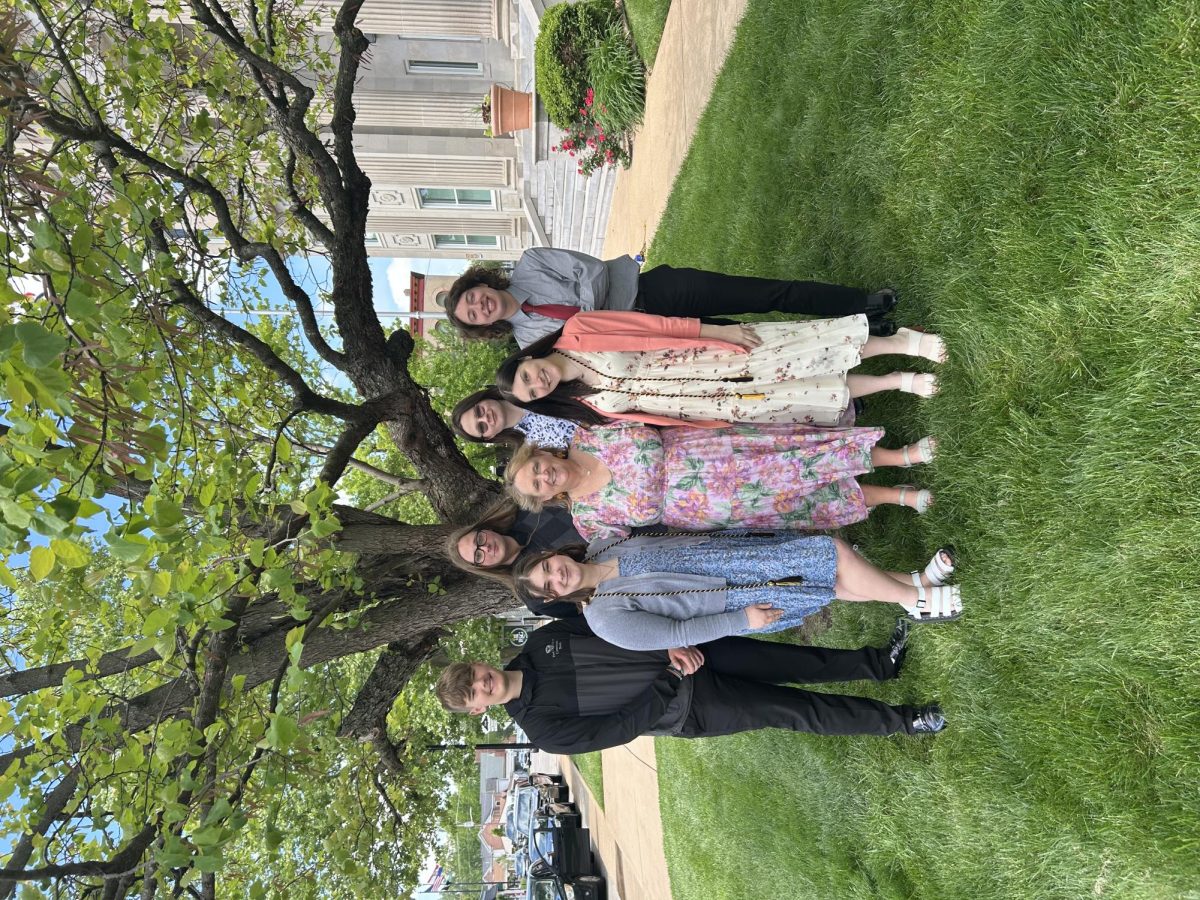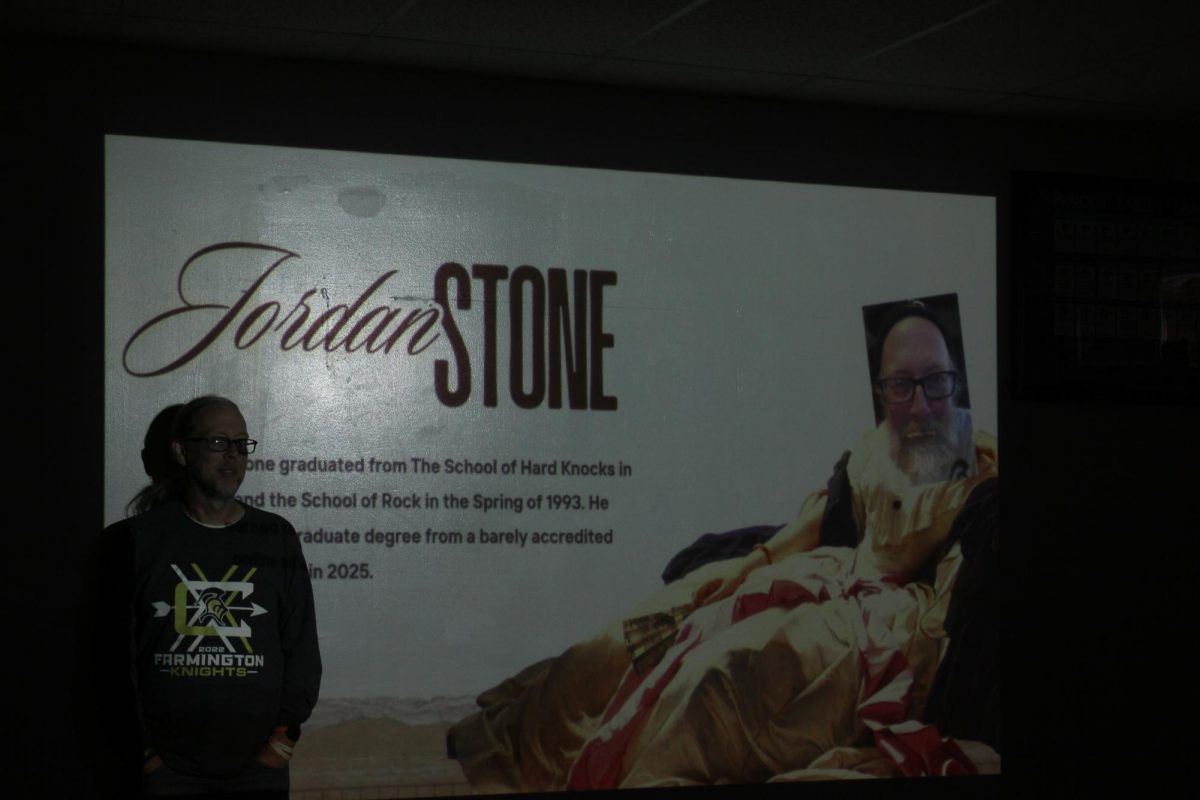The Holocaust marks a historical phenomenon in which people of the Jewish community were executed in mass numbers. According to History.com, “The twin goals of racial purity and territorial expansion were the core of Hitler’s worldview, and from 1933 onward they would combine to form the driving force behind his foreign and domestic policy,” Hitler was the leader of the Nazi party.
The Nazi party, National Socialist German Workers’ Party, consisted of German workers who felt unsettled about the economic state of Germany during the Great Depression. Around the 1930s, the antisemitic ideologies of the party began to arise, deeming certain Germans “desirable” while others were “inferior,” (Wikipedia).
During the Holocaust, over 6 million Jews lost their lives as a result of violence, neglect, prejudice, and hatred. People of the Jewish community were forced into concentration camps where they performed extreme acts of labor and lived in deadly conditions.
Corrie Ten Boom, a Dutch Christian watchmaker and author, was a survivor of the Holocaust and helped many Jewish people escape the horror. In her book, The Hiding Place, Boom details the extremities of the Holocaust and her experience in rescuing Jewish people from Nazi officers in Holland. Corrie Ten Boom gives readers an insight into how her faith helped her prevail even in the face of adversity.
As a young girl, Corrie’s bedroom served as a hiding place for Jewish people attempting to escape from Nazis. Her father, allowing Jewish people to find refuge in their homes, was sent to prison for housing these Jewish people. Boom’s family spent time in a concentration camp known as Ravensbrück concentration camp. Corrie’s father died 10 days after being sent to prison due to the harmful conditions, her sister, Betsy, passed away at this concentration camp, and other family members served time at this camp. Shortly after being placed here, Corrie was released due to a clerical error.
Corrie Ten Boom has authored over 20 books, and in May of 1975, The Hiding Place film, made by Billy Graham, an American evangelist, premiered. Boom’s work has inspired countless people worldwide, including performance artist Gayle Haas.
Gayle Haas, a performer and impersonator, grew up in Gary, Indiana. Haas had many Jewish friends, and they would be memorable throughout her life.
“I always had a special place in my heart for my Jewish friends,” said Gayle. “One family in particular had tattoos on their arms, the parents had the brand of Auschwitz. The eldest daughter was born in a refugee camp.”
Gayle grew up lacking an understanding of God. She attended regular church, but never read the Bible thoroughly. Her insight into Christianity was limited, believing that as long as she revered the Bible and didn’t kill anyone, she’d go to Heaven. One day, Gayle’s friend asked her a thought-provoking question that would propel her passion for the Lord.
“I did not have a personal relationship with Jesus growing up,” explained Haas. “I did not understand what God’s plan for me was in terms of the salvation for my life. In my senior year of high school, a friend asked me, ‘Gayle, if you died tonight, where would you go?’ I said ‘Well, I’d go to Heaven,’ and he responded ‘Well, how do you know?’
Haas’ friend would later share the Book of Romans from the New Testament with her, and she realized she needed a savior; Christ.
“That changed the whole direction of my life,” Gayle detailed. “Months later, my friend and I went to a Billy Graham crusade in Chicago, and Corrie Ten Boom did a lot of traveling with Billy Graham, sharing her story. She was not there that night, but Billy was talking about her, and I was so enamored with her story. She kind of became the first hero of the faith for me.”
Gayle Haas attended Western Illinois University and became interested in theater and drama. She later became a home economics instructor, until moving to Aurora, Illinois where her husband is from. Here, Haas was a teacher in church ministry and used her passion for theatrics and creativity to guide others.
“In 2005, I was asked to speak at a women’s event in Holland, Michigan. I thought, ‘What can I do to tie together the messages that I’ve been sharing about the love of God and forgiveness?’ My mind then immediately went to Corrie Ten Boom.”
Shortly after, Gayle decided to give a presentation of Corrie Ten Boom and perform as her. This is something that Haas would continue to do regularly. According to Haas, many Dutch people were in attendance, and she received a welcoming and supportive response.
“Now, my husband and I are retired from church ministry, and we are traveling all over,” Gayle elucidated. “I get to share Corrie’s story through a dramatic monologue.”
Gayle is a speaker for the Stonecroft Christian Women’s Connection, and she performs at several venues year round including schools. Haas is aware that antisemitism continues to plague the Jewish community. She believes it is important to share Boom’s story to raise awareness and inform the community about the prejudices many still hold.
“The main power of Corrie’s story is God’s love and forgiveness,” Gayle mentioned. “I have the privilege to share her story as Corrie at any place that will have me because it’s such a wonderful and powerful story. In particular, in the days we are in now, antisemitism is rising again and it is important to tell God’s story through the Christian woman Corrie Ten Boom and her family and their love for God’s people.”
Upon learning more about Corrie and her story, Gayle learned many great lessons that she will cherish for the rest of her life.
“Corrie’s most famous book, The Hiding Place, details her life growing up, but also her family’s life as the Nazis occupied Holland,” shared Haas. “From an early age, her father always taught her that every life is valuable. Life in the womb, the handicapped, the elderly. Every life is powerful because we are created in God’s image. Her parents were not just religious people, they loved Jesus. Around their oval table, they had guests who “couldn’t return the favor,” in particular, there was a love for the Jews.”
Gayle added that the care Corrie’s family had for the Jewish community began in 1844 with her Christian grandfather who began to question what he was truly doing to help Jewish people.
“He had a prayer meeting in his home, and one day another pastor came and asked him, ‘Do you pray for Jews,’ He said no. The pastor then went on to say ‘God’s word says “Pray for the peace of Jerusalem, and you’ll be blessed.” So, Corrie’s grandfather started praying for the Jews. This love of Jews poured into Corrie’s father’s heart, and then his children. That love was always there.”
Haas believes that Corrie is the “real deal,” and that her story will continue to inspire many around the world. Boom’s sister, Betsy, always told her that when they got out of the concentration camp, they would share their story. Corrie would always remember this.
“Her sister would often share with her while in the camp, ‘Corrie, we are going through this so that we can tell people everywhere that there is no pit so deep that God’s love is not deeper still.’ In the years to follow, Corrie began to travel, sharing God’s love and forgiveness.”
Corrie Ten Boom has several qualities that Gayle looks up to. Her faith, passion, and heroic story help shape how Gayle perceives Christianity and God’s plan for her.
“I think one of the wonderful things about Corrie Ten Boom is how honest she is about her shortcomings, and how she is a woman of faith. In reading her books, she shares the shoe leather of life and encourages everyone in their walk of the lord.”
Haas recently performed at the Long Memorial Hall and Parkland Chapel in Farmington, MO. During her performance at the Long Hall, Gayle shared with the audience one of the most important parts of Corrie’s message about the forgiveness of God.
“There is a point in the story where Corrie, after the war, meets one of the prison guards from the camp who she witnessed beat her sister. Corrie thought ‘This is one of the awful guards from Ravensbrück.’ He said to her, ‘You may not know this, but I was in Ravensbrück too, but when I was there, I was a guard, and I did terrible things. Since the war, I have met Jesus. Jesus has forgiven me. Oh but will you forgive me?’ Initially, Corrie was skeptical, but she was reminded in her heart that forgiveness is not a feeling, but a decision that we make. She then took his hand and forgave him and acknowledged him as her brother in Christ.”
Gayle plans to continue telling the exceptional story of Corrie Ten Boom all across the country.
For any questions or comments about Corrie Ten Boom or Gayle Haas’ A Visit With Corrie Ten Boom, visit Gayle’s webpage.

